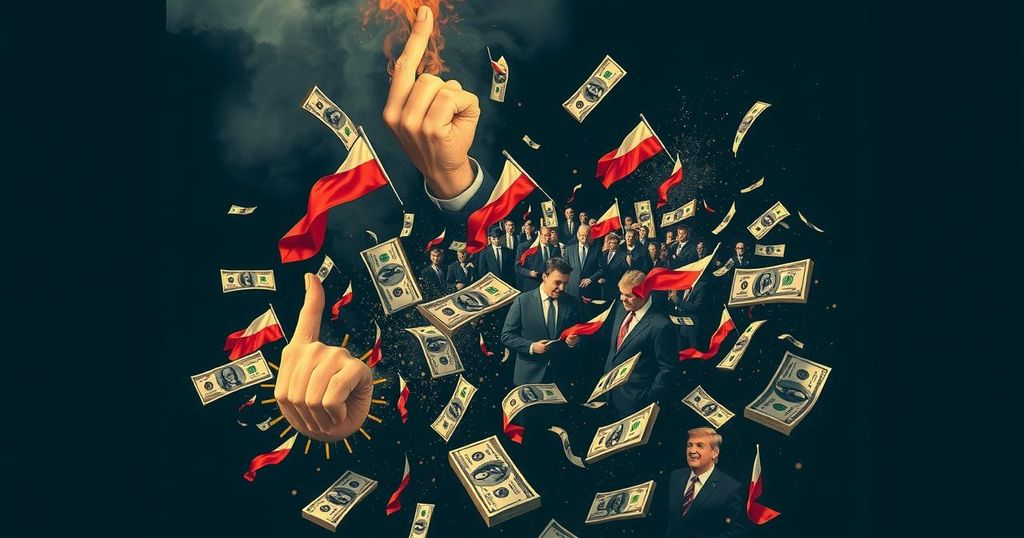World news
2024 PRESIDENTIAL ELECTION, AFRICA, ASIA, BIDEN, BUREAU OF INVESTIGATIVE JOURNALISM, DEMOS, DONALD TRUMP, ELECTION, HANNAH PERRY, MEDIA, MEDIA COVERAGE, NATIONAL SECURITY, NIGERIA, NORTH AMERICA, OHIO, PHILIPPINES, SPRINGFIELD, TRUMP, TRUMP ADMINISTRATION, UNITED PATRIOT, UNITED STATES, US
Jamal Robinson
0 Comments
Profiteering from Political Division: The Exploitation of U.S. Elections by Online Merchants
Profiteers are leveraging U.S. election conspiracies and hate speech to sell merchandise, illustrated by T-shirts from companies like United Patriot that spin false narratives for profit. This practice is propelled by social media algorithms that favor engagement with inflammatory content, revealing a troubling intersection of commerce and divisiveness as foreign and domestic actors exploit political tensions for financial gain. The trend raises urgent questions about accountability and content moderation on platforms like Facebook amidst an increasingly polarized political landscape.
The proliferation of merchandise exploiting U.S. election conspiracies and hate speech is a burgeoning industry driven by online profiteers eager to exploit political tensions for profit. An example includes a T-shirt marketed through United Patriot, featuring absurd slogans derived from false narratives propagated by political figures, including Donald Trump. These lies have incited threats and violence against marginalized communities, notably against Haitian migrants in Ohio. United Patriot is merely one among several online retailers capitalizing on the current political climate, particularly targeting supporters of Donald Trump with inflammatory content. Research conducted by the Bureau of Investigative Journalism (TBIJ) has highlighted four e-commerce enterprises that have collectively spent considerable sums on advertising via social media platforms, particularly Facebook, to promote falsehoods and conspiracies. These operations claim American patriotism while indicating to affiliates in various nations including Nigeria and the Philippines, revealing the global nature of this exploitation. The algorithms used by platforms such as Facebook exhibit a bias toward provocative content, resulting in a disproportionate amplification of inflammatory posts intended to maximize engagement. In parallel, schemes linked to these e-commerce endeavors include networks promoting betting scams targeting users with conspiracy-laden narratives purportedly related to the U.S. elections. Reports detail how these fraudulent operations present misleading claims regarding political figures and events, acting as clickbait to draw in unsuspecting users for financial gains from sports betting scams. The culmination of these observations underscores the necessity for greater accountability from social media companies, particularly in light of data showing that engagement-driven algorithms often favor the dissemination of conspiratorial and hateful content, which can incite further divisiveness among the populace.
The article investigates the alarming trend of e-commerce operators exploiting political divisions and conspiracies surrounding the U.S. elections to generate significant profits. Particularly, it evaluates the role of online merchandise retailers that use provocative and often false political messaging to attract attention and drive sales. The phenomenon is highlighted by the increased incidence of hate speech and conspiracy theories, underscored by the social implications of such actions leading to real-world violence against targeted groups. It also addresses how social media algorithms favor emotionally charged content, inadvertently encouraging the proliferation of misinformation. This discussion is contextualized within a framework of larger manipulative behaviors exemplified by foreign and domestic actors seeking financial gain from unstable political narratives. Emphasis is placed on the use of platforms like Facebook to distribute content that highlights credible misinformation while undermining the integrity of democratic processes.
The article concludes that the intersection of misinformation, online commerce, and social media engagement presents a concerning trajectory for both the integrity of the electoral process and the safety of vulnerable communities. As conspiracy theories and hate speech continue to gain traction, the responsibility falls upon social media platforms to amend their practices in moderating content. The exploitation of political division for profit reflects a dangerous trend that not only targets financial gain but also endangers societal cohesion.
Original Source: www.wired.com




Post Comment